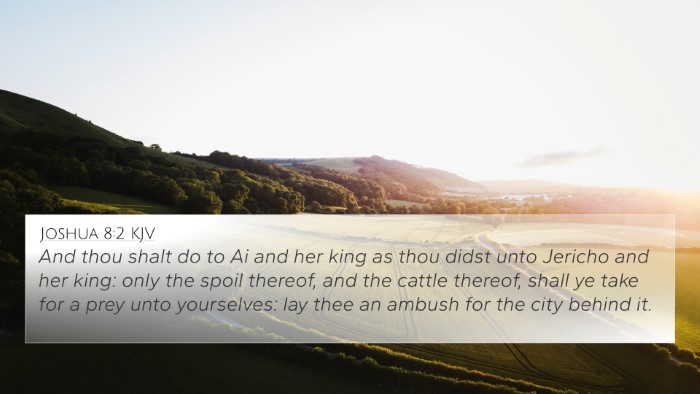Old Testament
Genesis Exodus Leviticus Numbers Deuteronomy Joshua Judges Ruth 1 Samuel 2 Samuel 1 Kings 2 Kings 1 Chronicles 2 Chronicles Ezra Nehemiah Esther Job Psalms Proverbs Ecclesiastes Song of Solomon Isaiah Jeremiah Lamentations Ezekiel Daniel Hosea Joel Amos Obadiah Jonah Micah Nahum Habakkuk Zephaniah Haggai Zechariah MalachiVerse
Joshua 8:1 Joshua 8:2 Joshua 8:3 Joshua 8:4 Joshua 8:5 Joshua 8:6 Joshua 8:7 Joshua 8:8 Joshua 8:9 Joshua 8:10 Joshua 8:11 Joshua 8:12 Joshua 8:13 Joshua 8:14 Joshua 8:15 Joshua 8:16 Joshua 8:17 Joshua 8:18 Joshua 8:19 Joshua 8:20 Joshua 8:21 Joshua 8:22 Joshua 8:23 Joshua 8:24 Joshua 8:25 Joshua 8:26 Joshua 8:27 Joshua 8:28 Joshua 8:29 Joshua 8:30 Joshua 8:31 Joshua 8:32 Joshua 8:33 Joshua 8:34 Joshua 8:35


